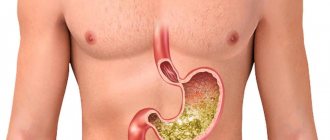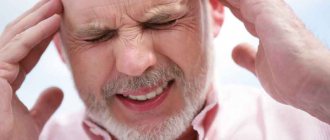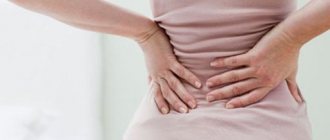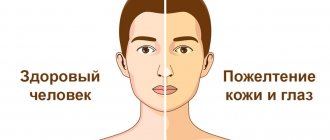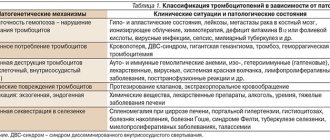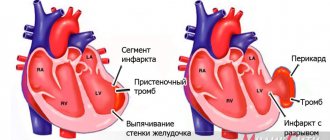The change of seasons brings pleasant variety to our lives. After sweltering summer days , the coolness is pleasant; the monotonous green of the leaves is replaced by a riot of colors. But when the leaves fall and the temperature is no longer comfortable, many feel like their battery is dead. A person is overcome by apathy and constant drowsiness . I want to eat a lot, my body requires sweets, fatty foods, fried foods, and not getting up from the couch. But no one canceled their studies or work. Constant absent-mindedness and weakness have a bad effect on work results and prevent you from studying well, making a career, or running a business. Some take vitamins or go to the doctor and get examined. It is useful to monitor your health and undergo an annual medical examination, but autumn drowsiness, if there are no other unpleasant symptoms, should not be a cause for concern. This is a natural reaction of the body to cold weather and reduced daylight hours .
Why do you always feel sleepy in the fall?
In autumn, hours decreases . Sunny summer days are replaced by cloudy weather. A person receives less ultraviolet radiation. The production of the hormone melatonin, which is involved in regulating the body’s circadian rhythms, decreases. If it is deficient, the biological clock does not work as accurately, and it is difficult for a person to fall asleep in the evening, wake up in the morning, and want to sleep .
Melatonin is needed for the synthesis of serotonin. If its quantity decreases, the body produces less of the joy hormone, and the person feels unhappy for no apparent reason.
It is genetically determined that in preparation for winter , the body accumulates fat reserves. Because of this, your appetite increases and you crave high-calorie food. In order to store fat reserves, he strives to reduce physical activity, resulting in greater weakness , apathy, and drowsiness.
This is a natural seasonal phenomenon. There is no need to be afraid of your condition or create additional stress by going on a strict diet or increasing physical activity. Don't be afraid to gain 2-3 kg. A slight increase in body weight reduces the risk of colds and flu. And it’s easier to regain your previous weight in the spring, when your biorhythms change again and you feel a surge of energy.
Vegetovascular (neurocirculatory) dystonia
Vegetative-vascular dystonia is a dysfunction of the vascular system associated with a disorder of the endocrine system (more precisely, with a change in the mechanism of neuroregulation). The disease is so common that many people do not perceive it as a serious illness. The high-risk group includes young and middle-aged women. In addition to drowsiness and headache, signs of VSD are:
- cardiopalmus,
- rapid onset of fatigue from minor physical exertion;
- feeling of lack of air (a person often sighs);
- periodic dizziness;
- pain in the heart area;
- cold extremities (especially hands and feet);
- tendency to sweat.
A large role in the development of the disease is played by hereditary predisposition, bad habits (smoking in the first place), a sedentary lifestyle, inability to withstand stressful situations, and emotional instability. VSD can develop against the background of cerebrovascular accident.
In most cases, symptoms of VSD disappear with lifestyle changes. Proper nutrition, physical exercise, adherence to a work-rest regime, and regular hardening lead to a significant improvement in well-being: drowsiness and headaches disappear, mood improves and performance increases.
In advanced cases, medications are prescribed to improve the functioning of the autonomic nervous system. The problem cannot be solved on its own; medical assistance is required.
Most common reasons
There are several reasons why you want to sleep in the fall :
- lack of sunlight – it affects the production of hormones;
- the body is preparing for winter - for some people, seasonal weight fluctuations are well expressed, for others they are almost not felt;
- uncomfortable temperature - over the summer we have become accustomed to the heat, and when the temperature outside the window drops, and the heating has not yet been turned on in the apartment, it reacts to a change in the usual climate, reduces activity in order to conserve heat and energy;
- weakened immunity - due to decreased doses of ultraviolet radiation, the production of vitamin D decreases; in the second half of autumn, the proportion of fresh local vegetables and fruits in the diet decreases;
- freezing – the weather in autumn is unstable, and when leaving the house in the morning it is difficult to choose the right clothes so as not to freeze;
- fatigue – after the end of the holiday season, many companies launch new projects, introduce various innovations, and an increase in work volumes and new demands cause stress, the desire to sleep is a natural defensive reaction;
- exacerbation of chronic diseases - many chronic diseases worsen in autumn and spring, which leads to a deterioration in well-being.
In pregnant women
In the first weeks of pregnancy, women want to sleep during the day, even if they get enough sleep during the night. A peculiar reaction to hormonal changes in the body occurs. It is difficult to overcome sleepiness if a woman works. I have to do gymnastics during lunch breaks.
Lethargy and weakness in the 2nd trimester of pregnancy is a symptom of anemia, which is quite common. Against the background of late toxicosis, a desire to sleep may appear, even if you have had enough sleep. Swelling of the limbs is added to drowsiness.
Blood pressure rises, and increased protein content is found in the urine. When the desire to sleep during the day does not go away for a long time and is combined with dizziness, headache, nausea, then the help of a doctor is needed.
Why is autumn drowsiness dangerous?
Drowsiness and weakness occur due to the approach of winter , but it can be the first sign of dangerous diseases: diabetes, heart failure, atherosclerosis, anemia, oncology. If there are other symptoms (increased sweating, palpitations, dry mouth, constantly thirsty, loss of appetite, weight loss, etc.), discuss the reasons for lethargy with your doctor.
Unless you have an underlying medical condition, drowsiness can also be life-threatening. Difficulty concentrating can be deadly for drivers and pedestrians, and for people who operate complex machinery and equipment. Absent-mindedness is not life-threatening, but it can create big problems for a student, accountant, or store clerk.
Treatment
If warning signs that are systemic in nature appear, including drowsiness and headaches, make an appointment with a specialist at the MedCom clinic in Ryazan. Experienced doctors will quickly and accurately diagnose and prescribe the correct treatment on an outpatient or inpatient basis. It has everything you need to undergo diagnostics and receive effective medical care, without queues or a bureaucratic approach. If you have any questions, please contact us by phone or through the online form.
How to overcome drowsiness
If you have no energy during the day , it’s difficult to concentrate, constantly want to sleep, help your body quickly overcome this unpleasant condition:
- review your diet;
- walk more in the fresh air;
- go to bed at the same time ;
- dress appropriately;
- find new sources of positive emotions;
- avoid stress and overwork.
What to eat so you don't want to sleep during the day
Start the day with a full breakfast containing complex carbohydrates: oatmeal, buckwheat, rice porridge, durum pasta, potatoes, whole grain bread. They will give you a boost of energy for several hours, and in the first half of the day you will be alert and productive.
No matter how busy you are, don't skip lunch. Don't limit yourself to snacking on the go, but don't eat too much either.
Don't skip dinner; it's hard to sleep on an empty stomach. In the evening, eat easily digestible proteins: lean meat, fish with a side dish of vegetables, dairy products.
To strengthen your immune system and look good, eat fresh fruits and vegetables more often. Do you constantly feel apathy and irritation? Eat a banana or chocolate. They contain the joy hormone serotonin, the production of which in the fall .
Autumn is not the best time for strict diets. Strict dietary restrictions are more difficult to endure than in summer or winter. The risk of developing depression and rapid weight gain increases when returning to the previous diet.
Physical activity
Do not encourage the body's desire to fall into winter sleep , provide it with moderate physical activity. Spend more time outdoors. Try to walk for at least an hour every day. If you regularly exercise, do not stop training, but you can reduce the load a little.
If, due to increased appetite and cravings for sweets, you have gained a few extra pounds, do not exhaust yourself with additional training. They will become stress for the body. He may respond by increasing his appetite or becoming even more drowsy.
Keep a daily routine
To stay alert and productive, you need to sleep at least 7-8 hours a day. Make your bed comfortable (orthopedic mattress, low pillow, blanket appropriate for the temperature in the bedroom). Ventilate your bedroom before going to bed. Two hours before bedtime, give up coffee and strong tea (black or green), but you can drink mint infusion, milk with honey.
Dress properly
I want to wear open summer dresses and a thin jacket for as long as possible. But, if you freeze on the way to work, then once you warm up, you will want to sleep. And you will increase the risk of catching a cold or the flu. Keep things on hand that you can wear if it suddenly gets cold.
Positive emotions
Positive emotions and new impressions will help you overcome drowsiness and become more energetic. Read interesting books, watch good films, funny comedy shows, listen to your favorite music, update your wardrobe or the interior of your apartment. But, if you cannot cope with depression on your own, consult a doctor and discuss with him the need to take tonic vitamin complexes, antidepressants or drugs to improve brain function.
Physical inactivity and stress
One of the most common causes of increased fatigue among middle-aged and elderly people is low physical activity8. According to research, people with low activity levels have insufficient strength and endurance, which limits their ability to exercise. However, as you start training, fatigue decreases. Moreover, the effectiveness of training is manifested even with minimal loads11.
Another scourge of our time is chronic stress. It has been proven that they are associated with increased fatigue and asthenia12.
References
- Hagemans MLC et al. Impact of late-onset Pompe disease on participation in daily life activities: Evaluation of the Rotterdam Handicap Scale // Neuromuscul. Discord. Elsevier, 2007. Vol. 17, No. 7. P. 537–543.
- Pizova N.V. Fatigue, asthenia and chronic fatigue. What it is? // Cons. medicum. 2012. T. 14, No. 2.
- Shakirova I.N., Dyukova G.M. Asthenia is an interdisciplinary problem // Difficult patient. 2012. T. 10, no. 5. pp. 14–16.
- Chen MK The epidemiology of self-perceived fatigue among adults // Prev. Med. (Baltim). Academic Press, 1986. Vol. 15, No. 1. P. 74–81.
- Westerterp KR Diet induced thermogenesis. // Nutr. Metab. (Lond). BioMed Central, 2004. Vol. 1, No. 1. P. 5.
- Blomstrand E. A Role for Branched-Chain Amino Acids in Reducing Central Fatigue // J. Nutr. 2006. Vol. 136, No. 2. P. 544S–547S.
- Johnson K., Sattari M. Vitamin D deficiency and fatigue: an unusual presentation // Springerplus. 2015. Vol. 4, No. 1. P. 584.
- Ecemis GC, Atmaca A. Quality of life is impaired not only in vitamin D deficient but also in vitamin D-insufficient pre-menopausal women. // J. Endocrinol. Invest. 2013. Vol. 36, No. 8. P. 622–627.
- Ganio MS et al. Mild dehydration impairs cognitive performance and mood of men // Br. J. Nutr. 2011. Vol. 106, No. 10. P. 1535–1543.
- Hartzler BM Fatigue on the flight deck: The consequences of sleep loss and the benefits of napping // Accid. Anal. Prev. 2014. Vol. 62. P. 309–318.
- de Vries JD et al. Exercise as an Intervention to Reduce Study-Related Fatigue among University Students: A Two-Arm Parallel Randomized Controlled Trial // PLoS One / ed. Fisher G. 2021. Vol. 11, No. 3. P. e0152137.
- Doerr JM et al. Reciprocal relationship between acute stress and acute fatigue in everyday life in a sample of university students // Biol. Psychol. 2015. Vol. 110. P. 42–49.
GZEA.PD.18.09.0435n
You lack physical activity
A sedentary lifestyle is a sure way to earn Active and Sedentary Behaviors Influence Feelings of Energy and Fatigue in Women daytime fatigue and drowsiness.
Moreover, this is a vicious circle: the less you move, the more you want to sleep, the more sleepy you get, the less you move. You can break it only by force of will.
What to do
Move. The more often you get up and exercise, the more energetic and less sleepy you will feel. Check and make sure.
Health problems
In addition to taking antihistamines (against allergies), tranquilizers and other sedative (calming) drugs, the reasons may be:
- hormones. In winter and in cloudy weather, there is a desire to quickly go to bed due to excess melatonin; diabetes mellitus and hypothyroidism (deficiency of hormones produced by the thyroid gland, expressed in hair loss, swelling on the face, legs and arms, brittle nails, constant headache, dry skin, constipation);
- cardiovascular diseases. When blood pressure drops, cells receive less oxygen, which causes a slowdown in biological processes. In young people (20–30 years old), hypotension is usually considered physiological and is recognized as a normal variant;
- traumatic brain injury. Due to the presence of edema and impaired blood supply, less oxygen reaches certain lobes of the brain, which causes a desire to sleep;
- apnea. Due to respiratory arrest, a person wakes up at night and gets up exhausted in the morning;
- Iron-deficiency anemia. An insufficient number of red blood cells and hemoglobin can lead to oxygen starvation of tissues and organs - hypoxia, which is accompanied by fatigue, dizziness, shortness of breath, increased heart rate;
- restless legs syndrome. The leg muscles contract during sleep almost imperceptibly for the patient, that is, he does not wake up, but the duration of the deep phase is disrupted;
- cervical osteochondrosis. Caused by obesity, sedentary work or spinal curvature, it may also be accompanied by pain in the neck, shoulder, collarbone, blurred vision, drowsiness;
- other diseases. This group includes bronchial asthma, narcolepsy with sudden uncontrollable attacks of falling asleep, idiopathic hypersomnia, epilepsy and other diseases.
In all these cases, only a narrow specialist will help: an allergist, immunologist, endocrinologist or a doctor of another specialty.
Main symptoms
Before we understand the reasons why you always want to sleep, let’s define the typical symptoms. These include:
- a strong desire to sleep during the day;
- difficulty waking up;
- lethargy, apathy, emotional depression;
- frequent irritability, anxiety;
- poor concentration when performing daily and work tasks;
- memory impairment.
These unpleasant symptoms may be the result of circadian rhythm disturbances, stress, certain diseases, poor diet, or staying in a poorly ventilated room.
Sleep deficiency
Maintaining a sleep schedule is of great importance for health, given that the need for it varies from person to person. The expert points out that some people only need 5-6 hours of sleep, while others need ten hours of sleep to recuperate.
Sleep deficiency is perhaps the most common problem. This phenomenon is also called sleep phase shift. As a result of disruption, circadian rhythms are disrupted, and then cortisol, the stress hormone, is released. Because of this, a person cannot fall asleep when needed.
Photo: istockphoto.com
Typically, cortisol is produced between five and seven o'clock in the morning. Therefore, a person feels cheerful and energetic. When the sleep phase shifts, the hormone is released much later. If at a young age this phenomenon is tolerated calmly, then in adulthood it can provoke somatic diseases. For example, hypertension, obesity and diabetes.
Important!
If sleep deficiency occurs on a regular basis, fatigue accumulates and, as a result, cognitive functions are impaired. Performance also decreases.
7 tricks to help you fall asleep in a few minutes




